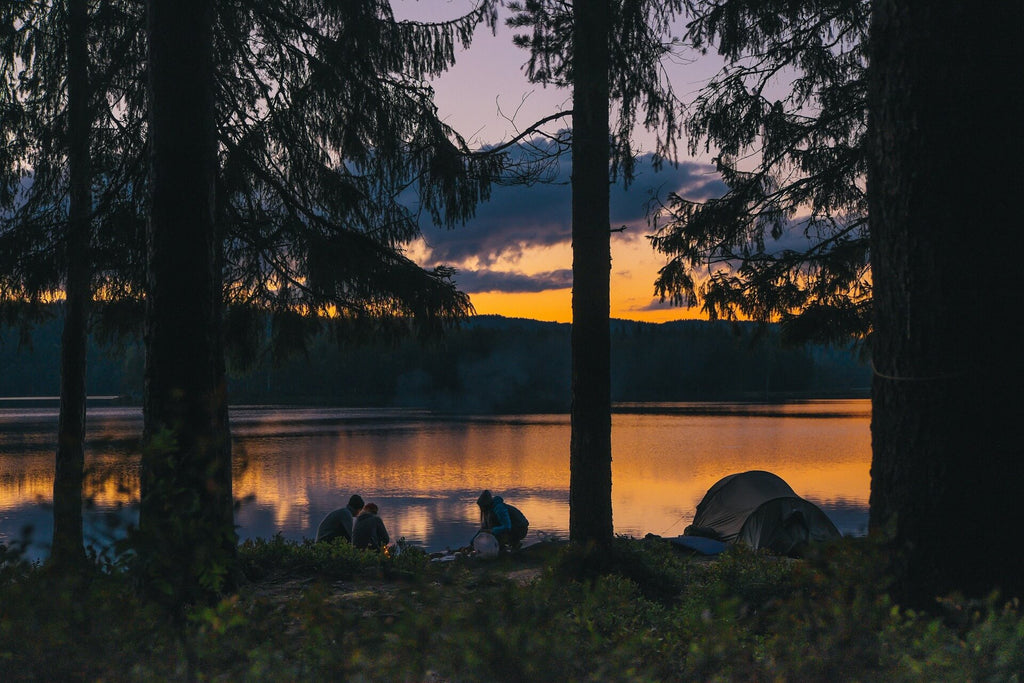Wild camping in Germany – the legal situation at a glance

Anyone who has spent a while in the USA or Scandinavia as a true outdoor fan or bushcraft supporter will certainly look back on their time in the woods with a big smile. Freedom. Although every one of us here in Germany is allowed to live out this word to the full from the beginning of our lives, during an outdoor trip you sometimes notice that your love of nature is putting chains on you that you would like to break. In some countries you can pitch your tent almost anywhere you want, but in our country you are faced with legal stop signs. Wild camping in Germany - is that even possible? WOLFGANGS looks at the facts.
Wild camping in Germany - confusing legal situation
In Germany, it is almost impossible to make a broad, location-wide statement about the legal situation, as the individual differences are sometimes far too great. This basic situation makes it complicated. You have to study the forest and nature conservation laws of the respective federal state in detail in order to find an answer that is exactly right for your trip. In the following article, WOLFGANGS does not make any binding statements when it comes to gray areas, but rather gives a general and general assessment of the situation.
General overnight stay bans in Germany
However confusing the German legal situation may be in some respects with regard to free camping, it is also strict and clear in many other respects.
Spending the night in nature reserves, national parks, biotopes and the like is strictly prohibited. The coastal areas are also usually very well protected, so if you spend the night there you will have to pay a lot. The Federal Nature Conservation Act raises a warning finger here and ensures that the various sub-areas continue to look impeccable in the future.
In other areas, the motto is that you should always pay attention to prohibition signs. Private property, including some forest areas, is also off-limits for overnight stays according to the law.
The right of access allows for flexibility
There is no need to be sad, because the right of access in Germany gives at least some hope of being able to spend a night in the forest despite the strict conditions. According to this law, forests and fields can be entered as long as the purpose is solely for recreation. The best thing? This line of law doesn't care whether it is private property or public land ! As long as you behave quietly and don't disregard the other general rules regarding nature conservation, nothing stands in the way of your stay in nature .
All of these lines lead you to a happy conclusion - sleeping is an extremely relaxing activity and can therefore be done at the places mentioned above during the night. Literally, only " staying longer " is expressly prohibited - but this sentence leaves a lot of room for interpretation, so you end up in the typical gray area. In most cases, this starting point means that nothing stands in the way of an overnight stay.

What does the law mean by the word "sleep"?
Even though we have now happily established in the last passage that sleeping in nature is not a problem under certain conditions, it is still important to keep in mind how one must sleep in order to have a legally compliant night.
All in all, it can be said that spending the night in a tent is clearly associated with greater difficulties. There is no explicit line in German law for bivouacking in the open air, so this cannot be punished accordingly. However, the situation is different with camping. This is generally prohibited in German forests , unless the forest area is private property or you have received permission from the owner to spend the night there.
By the way , you should also avoid spending the night in a tent in the open countryside. Even if you are outside of forests and residential areas, you often don't know whether it is private property or not because the location is difficult or impossible to see. Although this situation is a grey area according to Section 44 of the Federal Nature Conservation Act, spending the night on private land can result in a rude and expensive awakening.
Bivouacking brings you the long-awaited outdoor experience
Grab your bivouac or sleeping bag and off you go into the countryside! This type of overnight stay offers you the best options in Germany and you can always decide flexibly where exactly you want to stay. As mentioned above, there are some prohibited areas and things you should be aware of, but the hurdles overall are relatively small and not tragic.
If necessary, look for worthwhile alternatives that allow you to spend the night in a tent. This does not always have to involve a campsite where you have to sleep next to camper vans and vans . In the Eifel, for example, there have been so-called " natural campsites " for some time.
For a small fee, which should be around €10, you can stay legally on a specially built campsite in the middle of the forest. Cooking areas and toilets are available free of charge at such facilities and you can also light your evening campfire in a bowl or at a location specially provided for this purpose.
As you can see, there are some obstacles in Germany, but they are never insurmountable. Free camping in Germany - it's all a matter of the right planning and approach.






